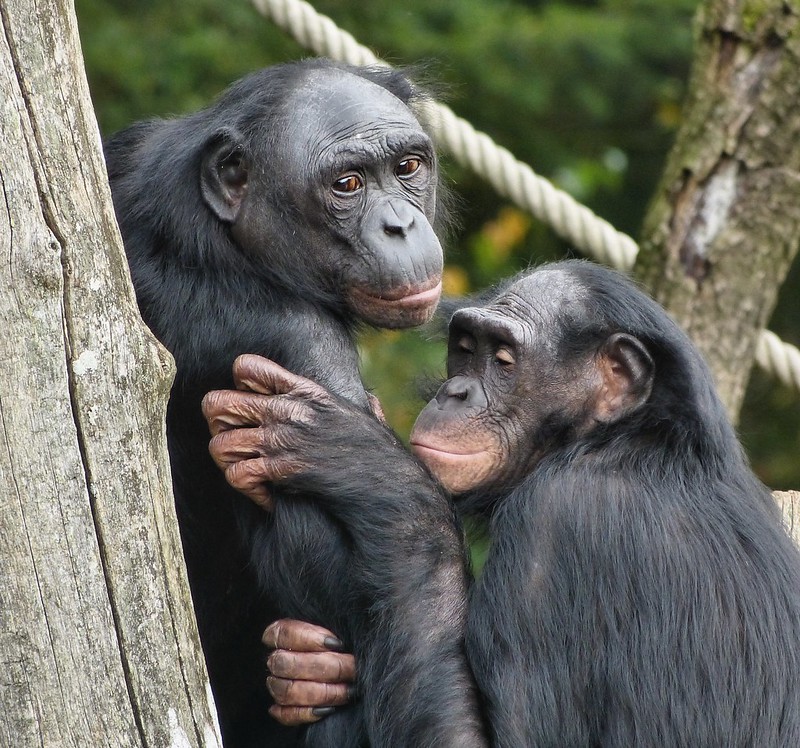“Unlocking the Mysteries of Bonobos: 10 Amazing Facts You Need to Know”
When it comes to fascinating creatures in the animal kingdom, bonobos are often overshadowed by their more famous cousins, the chimpanzees and gorillas. However, these intelligent and enigmatic apes have a unique set of characteristics that set them apart from other primates. In this article, we’ll dive into the world of bonobos and uncover 10 amazing facts that will leave you in awe of these remarkable creatures.
-
Bonobos Are Our Closest Relatives
Bonobos (Pan paniscus) are one of the two species of chimpanzees, with the other being the common chimpanzee (Pan troglodytes). Humans share a common ancestor with both bonobos and common chimpanzees, making these primates our closest living relatives. While we may look quite different on the outside, our DNA is nearly 99% identical to that of bonobos.
-
Peaceful Primate Society
One of the most striking facts about bonobos is their peaceful and egalitarian society. Unlike common chimpanzees, which are known for their aggression and hierarchical structures, bonobos use social bonding and sexual activity to resolve conflicts. This remarkable ability to diffuse tension through social interactions has earned them the nickname “hippie apes.”
-
Female Empowerment
In bonobo society, females hold a dominant position. They form strong bonds with one another and often cooperate to maintain social harmony. Female bonobos are not only dominant over males but also have a significant say in group decision-making.
-
Matriarchal Society
Bonobo communities are typically led by a matriarchal figure—a wise, older female who plays a crucial role in resolving disputes, mediating conflicts, and ensuring the group’s overall well-being. This female-led dynamic is unique among primates.
-
Multilingual Communication
Bonobos are capable of vocalizing in a wide range of sounds, and they use various vocalizations, gestures, and body language to communicate with one another. Researchers have identified over 30 distinct vocalizations, including different types of screams, hoots, and grunts.
-
Highly Intelligent
Bonobos exhibit remarkable problem-solving skills and have shown the ability to use tools, much like common chimpanzees. They can also understand spoken language and have been trained to communicate with humans using symbols and lexigrams.
-
Limited Geographic Range
Bonobos are native to the Democratic Republic of Congo in Central Africa. Their habitat is confined to the dense rainforests of this region. Unfortunately, their limited geographic range makes them vulnerable to habitat loss and poaching.
-
Endangered Status
Bonobos are listed as an endangered species by the International Union for Conservation of Nature (IUCN). Their population has been steadily declining due to habitat destruction, the bushmeat trade, and civil unrest in the Democratic Republic of Congo. Conservation efforts are crucial to their survival.
-
Unique Sexual Behavior
Bonobos have garnered attention for their open and frequent sexual behavior, which plays a central role in their society. Sexual interactions are not limited to reproduction; they serve as a way to establish and maintain social bonds, reduce tension, and resolve conflicts.
-
Scientific Enigma
Despite their captivating behaviors and close genetic relation to humans, bonobos remain one of the least studied great ape species. Scientific research on bonobos continues to unravel their mysteries, providing valuable insights into human evolution and behavior.
Conclusion
Bonobos are truly remarkable creatures that challenge our understanding of primates and the natural world. From their peaceful society to their unique approach to conflict resolution, these “hippie apes” offer a fascinating glimpse into the complex world of animal behavior. As we strive to protect their habitat and conserve their population, we also gain valuable insights into our own evolutionary history. So, the next time you hear about chimpanzees or gorillas, remember to give bonobos their well-deserved moment in the spotlight.

